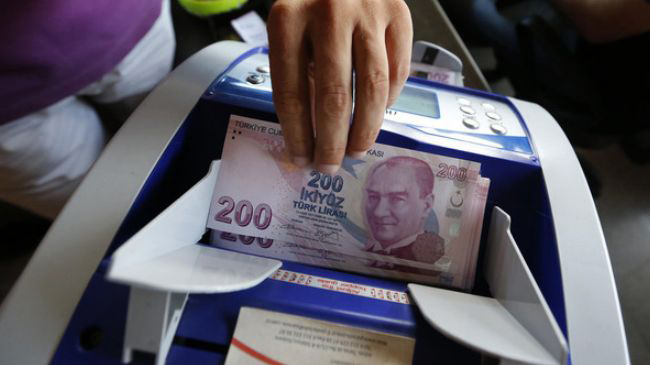Baku, Azerbaijan, Apr. 11
By Umid Niayesh - Trend:
Replacing the US dollar with national currencies in Iran and Turkey bilateral transactions will lead to monetary stability of the two countries, former Central Bank of Iran (CBI) consultant Bijan Bidabad told Trend April 11.
Turkey's Development Minister Cevdet Yilmaz said last week that one third of trade between Turkey and Iran is now conducted in the Turkish lira or the Iranian rial.
Last year, Turkish President Recep Tayyip Erdogan said that Iran and Turkey's national currencies should become the means for trade exchanges between the two countries and they should not be influenced by the western countries. He also said that Ankara and Tehran should try to conduct all transactions with national currencies.
According to Bidabad, as the share of local currencies in global trade increases, the role of international currencies will be decreased which can be a subject of some concern for powerful international currencies and global trade.
In short term it can not affect Iran, Turkey economy as well as global economy, but if other countries also join the idea of replacing international currencies with local ones it can affect international financing, he said.
If all countries trade with their national currencies, practically usage of global currencies such as USD and Euro will decrease, which will lead to instability of the international currencies such as USD, he added.
Bidabadi further said that conducting all transactions between Tehran and Ankara with national currencies is possible.
It will provide positive results in the economy of both countries, he said.
Further responding to a question about the two countries' fail to increase the value of mutual trade despite all taken measures, he said that the recent fall in Tehran-Ankara bilateral trade is due to political situations in both countries.
Both Iran and Turkey are experiencing a transition period in terms of political situation and it should not be expected that the trade ties remain stable during this period.
Tehran and Ankara are intended to raise their bilateral trade to $30 billion per annum.
Iran-Turkey trade turnover volume dropped by 32.7 percent in the first two months of the current year.
According to the Turkish Statistics Institute, trade turnover between Iran and Turkey stood at $1.324 billion in February and January 2016 which indicates a 32.7 percent fall compared to $1.968 billion in the same period of last year.
While Turkey's exports to Iran in Feb and Jan 2015 valued $667.8 million, the recent statistics has revealed that the figure has dropped by 16 percent falling to $561.1million for the same months in 2016.
Meanwhile, Turkey's imports from Iran reduced by 41.3 percent and stood at $763.6 million in the mentioned period.
The trade turnover between Iran and Turkey dropped by 29 percent in 2015 compared to 2014 as the figure in 2014 was $13.71 billion which stood at $9.76 billion in 2015.






